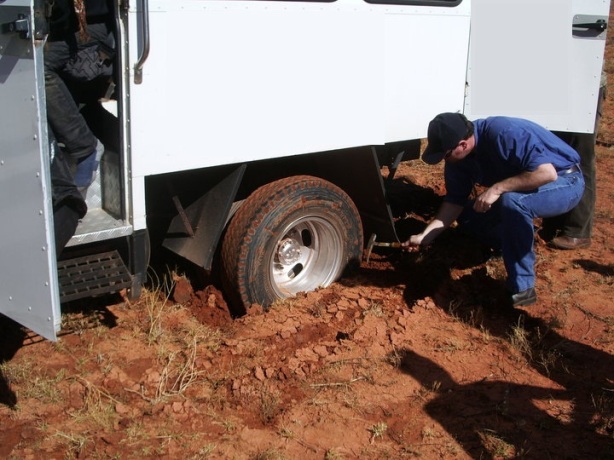I am not particularly old.
When I was a kid, both of my grandmothers cooked on wood stoves out in the country. One, maybe both, baked bread. My grandfathers chopped the wood for the stove. With an axe.
One of them had a party-line telephone, meaning that a handle on the phone connected to a small internal generator was wound vigorously to send a current out and ring a bell at the local switchboard, at which point you could ask the operator to connect you to those with whom you wished to speak. For incoming calls, you had to correctly identify the pattern of rings that came from the phone, otherwise you would be intercepting other peoples phonecalls. Because the party-line was effectively wired in a big local loop, everybody could listen in on everybody else’s phonecalls simply by lifting the receiver.
Even for people in the cities with normal phones, you had to dial your local exchange and ask to be put through to long-distance connections by an operator. On popular trunk lines you even had to “book” calls.
The term “Service Station” did what it said on the tin. The attendant came out and filled your tank up for you, checked your oil and water, and cleaned your windscreen.
ATMs did not exist, or at least had not reached these shores. Credit cards were mostly unheardof. Everybody dealt in cash, and people had to line up at the pay window on pay day to get a yellow envelope. When you went to the supermarket (the concept of the “super”market had not been around all that long), you put your groceries into a wooden frame on the checkout and the check-out girls had to pull it towards them (thus emptying the frame for the next customer) to start ringing them through. Manually, of course, by reading the price labels on each product and entering it into a register that looked like nothing so much as a companion piece to a beige 1946 Ford. And would probably have stood up well in a collision with one.
Shopping hours were strictly 8:30-5pm weekdays. You made sure you had enough cash, petrol, food, and anything else you needed for the whole weekend. The pubs of course were open. And the churches.
The other exception was the corner shop, which may have stocked a few necessities. Their smell of swept wooden floors, and of their groceries, their somewhat dank lighting, and their idiosyncratic shopkeepers is something we’ll not see the like of again.
Air conditioning was a rarely-experienced fantasy in the biggest shops. The concept of air conditioning in cars, homes, and schools was nothing short of laughable.
Mobile phones were strictly in the realm of ridiculous Dick Tracy and Maxwell Smart fantasy. Phones *in the home* weren’t even ubiquitous, let alone phones that you could carry around.
FM Radio…..? What’s that?? AM radios were sold with regionalised dials with the callsigns of local stations on their dials instead of numbers. And there was no such thing as AM stereo.
For state-of-the-art home entertainment, “Hi-Fi” was the standard. Big record players with big speakers and a discrete amplifier. The era of vinyl was still in full swing with no suggestion it could ever end. Kids who handled records in shops were frowned at because of their fragility. And we were never allowed to “put a record on” because of the high chance of little hands scratching the records with the needle.
In the capital cities and periphery, we were fortunate, as we had four TV stations, 0, 2, 7, and 9. In regional areas, there was only half that; the local equivalent of 2 (the government broadcaster) and a local commercial station. Of course, these were all in black and white, and they didn’t even broadcast all day, and to change between them you had to actually walk to the TV after having convinced your parents you weren’t going to break their expensive piece of relatively newfangled technology by touching it, and rotate a heavily-sprung channel dial with accompanying thunk-thunk-thunk noise. There were quite limited broadcast hours, and the “test pattern” in the intervening hours was a dreaded item of boredom.
Home VCRs did not exist. Recording one programme off the TV whilst watching a second, and then watching the recorded show back later, was a heady dream we did not dare to have lest our little hearts burst.
If you had two TVs in a family you were rich.
Air travel was expensive. Only-taken-by-the-rich expensive. And an elitist thing to indulge in. Real people caught trains.
Seatbelts in cars were not unheardof, however they were generally restricted to the front seat, and there were plenty of cars still on the road with none at all. Babies were brought home from the hospital in their often unrestrained mothers’ arms.
Manual cars had two- or three-on-the-tree and a front bench seat. A car radio was a rare option. The car heater for the winter months certainly existed, but the smell it emitted generally meant you were better off without it.
Japanese cars were a bit of a niche that certain people indulged in, for some reason. Nobody really took them seriously. Only rich people drove European cars.
If you had two cars in a family you were rich.
Teenagers spent their 20c pieces in pinball machines. There was nothing else. Rich households may have procured a TV-connectable game of “Tennis” which was a $300 game of pong. Thus was the harbinger of our modern times.
As I look back at all of this, it all seems very familiar. These days it probably seems as though it is the collected dim rememberings of an octogenarian trying to justify how “everything was better back then”. But I am 40. All of this stuff was the norm a bit over 30 years ago. Which no longer feels like a very long time.
Now…..tonight I sat and helped my daughter put a virtual ensemble outfit on a virtual doll in an app on the iPad, a touchscreen device that can be bent to almost any purpose, including, very easily, face-to-face communication with anyone anywhere in the world at a few moments’ notice. I can get pretty much any information, see any vision, hear any song, buy any damn thing I like, communicate with whomever I like…….watch the world……..all through moving my fingers around on a single pane of glass.
I can…..
– Fly to the other side of the country with as little as a day’s notice for a few hundred dollars;
– Get most things I could want 24 hours a day 7 days a week;
– Be contacted anywhere via pretty much any means I choose by virtue of a small device I carry around in my pocket, on which I can also take brilliant photographs and distribute them to any part of the world in a matter of seconds, get any news I like, buy anything I like, sell anything I like, read any book I like, find my way around reliably with the help of a network of satellites up in space, and do pretty much anything else I can think of;
– Watch NASA missions in space *LIVE* and in high definition (okay, not any more as such but until recently);
– Watch TV and movies in my car;
– Choose from, hell, I don’t even know how many TV channels for free, all in huge high-definition colour, and I can buy access to more TV if I want (but, honestly, why??);
– Get music and movies to enjoy at home that are crystal clear on disks that are unbreakable excepting by dint of considerable effort;
– Sit in comfort in a T-shirt regardless of the prevailing weather pretty much anywhere I choose to go;
– And, for the most part, any combination of the above.
I sometimes find reconciling the above catalogue of amenities of a world gone by (to borrow a phrase from David Brin) with my life these days difficult, and that’s coming from someone who has worked in IT for 15 years. The old-timey list of life’s realities above still feels so very familiar, and yet nary a trace of any of it is still apparent from day to day. Is the world a more fun place? Definitely, I think. Is is better? I dunno. That’s subjective.
But I do know that my generation was the last to have the experience of the old world, at least the suburbia portion of which was a fairly consistent place between 1946 and 1980, by and large. We were the last to live in the time prior to the crashing wave of the technological revolution. For those that came after us, the world of pervasive, rampaging technological advance is all that they have ever known.
We knew what was happening. We could see the revolution hitting. Even with the first wave. The pocket calculators, the VCRs, the hand-held LCD games, the portable tape players, the digital watches along with all of the other digital readouts that suddenly appeared, the ATMs. We knew what was going on, even if we couldn’t really conceive of where it would lead or that the pace of change would only and ever accelerate.
We are in fact one of few generations to bestride the change. And I wonder about the effect of that. I sometimes feel that despite the fact we have taken to the new world like fish to water, there is an element of automatic comparison to how things were “before”. Perhaps it’s as simple as nostalgia. But something in me wonders how later generations would cope if presented with things as they once were. I sometimes wonder how well *we’re* coping. The term “Future Shock” was first used in my presence probably 30 years ago in reference to a story about someone from a hundred years ago turning up in the present day. But the term can probably be applied to people living during such times as these. I wonder if it will apply to every generation from now on.
In any case, the times we live in are exciting and unique – to a much greater extent than most people realise. I for one am grateful for the opportunity to see come to pass almost everything cool that we used to think of as coming “in the future” when we were kids. Well, the future is here. All the more sobering when you consider how a society such as ours would have been thought of by, for example, the Romans with our voice-activated lighting, long-distance travel, and astounding medicine. More sobering still are the possibilities that await people another two thousand years hence. It’s quite something to consider our place on the timeline of history.
I retain a strong affection for the time before 1980 when I was a kid. Probably a lot to do with the fact that I was a kid, all play no work, kind of thing. There will always be stuff I miss about it. But also that we didn’t have everything, and not everything was easy.
Now of course, pretty much everything *is* easy. I wouldn’t trade our current advantages for anything. Living In The Future is, invariably, awesome.


